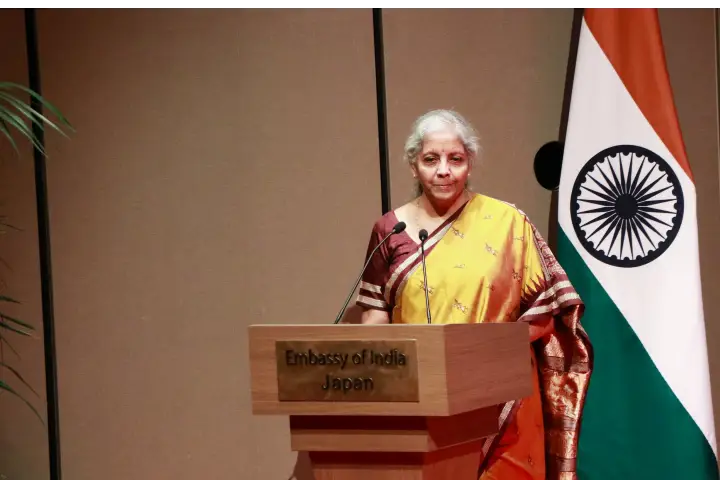

Finance Minister Nirmala Sitharaman (Image courtesy: Finance Ministry)
Finance Minister Nirmala Sitharaman on Thursday said the government was going in for a big push to the agriculture and manufacturing sectors to accelerate the country’s economic growth rate.
Addressing an event at the 125th anniversary of Delhi University’s Hindu College, the Finance Minister said that modernising post-harvest practices to boost the country’s agriculture ecosystem, and pushing manufacturing in sunrise industries such as renewable energy, semiconductors, material sciences, earth sciences and space industries are among the government’s top priorities.
“High priority is being given to these sectors, and not just in the budget. We are also looking at improving R&D and bringing in top experts as advisors,” she said.
Sitharaman said that India has remained self-sufficient in the face of global challenges such as the Red Sea crisis, and many countries want to work with India to build a long-term understanding for food exports.
India is nearly self-sufficient as far as agriculture is concerned, except in oil seeds and pulses, the Finance Minister said.
“Immense possibility exists in agriculture, and we are investing in research and development activities in this sector,” she added.
The Finance Minister also elaborated on the need for better training for youths to enable them to become eligible for jobs in industry.
“Two days ago I had an engagement with the industry which is keen to recruit people. The only worry that industry has, is that as students come out of universities, they are not ready to be deployed straight into a job. There is a gap between what is learnt in these universities and the expectation of industries,” she said.
According to Sitharaman, while one set of fresh entrants into the workforce can get some technical training by industry groups, the skill gap faced by another set of entrants is being bridged by the government at the Central and state level.
The Finance Minister also said that the government had laid the material foundation for a “Viksit Bharat” by providing basic necessities to all.
She said that since 2014, the government has undertaken efforts to provide basic necessities of housing, water, roads, and electricity to people with a sense of urgency which was lacking over the previous 50-60 years.
“In 2014, there was still a huge number waiting for their houses and electricity roads. Fifty years went by without a sense of urgency,” she added.
Sitharaman stated that the government today is close to achieving saturation in various social sector schemes to ensure these fundamental things are available to everyone without any discrimination.
Minister for Electronics and Information Technology Ashwini Vaishnaw said on Friday that the government is…
Renowned human rights activist and political analyst Amjad Ayub Mirza has expressed a strong denunciation…
As was widely expected, the Indian economy grew by 6.5 per cent in real terms…
World No Tobacco Day, marked annually on 31 May, addresses a major public health challenge--the…
Defence Minister Rajnath Singh, addressing officers and sailors onboard India's first indigenous aircraft carrier INS…
The leadership team from the Central Tibetan Administration (CTA) arrived in Tokyo to participate in…